A video about brushing teeth with kōhungahunga (infants) and tamariki (children)
Source: New Zealand Dental Association
How to look after your child’s teeth in 5 steps
Healthy teeth = a healthy smile. Follow these 5 steps to protect your child's teeth.
Brush teeth twice a day with a fluoride toothpaste.
Have regular dental check-ups.
Lift the lip every month to check for signs of tooth decay (holes).
Choose healthy snacks.
Drink water or milk.
Brush teeth twice a day
By about 3 years of age your child will have their first set of teeth - 20 'baby' teeth. These teeth will help your child eat and speak well. Healthy baby teeth usually mean healthy adult teeth too, so it's important you look after your child's first teeth.
Look after your child's first teeth by brushing them twice a day - after breakfast and before bed. You may find it easier to stand behind your child and gently tilt their head back as you brush. Use a small toothbrush with soft bristles and a half-pea size amount of regular-strength fluoride toothpaste.
Brush your child's teeth for 2 minutes:
- all around the inside surfaces, where the teeth meet the gums, and also the top chewing surfaces
- on the front of the teeth, brushing in tiny circles all around the outside surfaces, close to the gums
Teach your child to spit out the left-over toothpaste after brushing. Don't rinse with water, because a small amount of fluoride toothpaste left around the teeth will help to protect them.
It's important to brush your child's teeth until they are about 8 years old.
See the toothpaste advice chart from the Bee Healthy Regional Dental Service on which toothpaste to use, which ones to avoid, and how much to use.
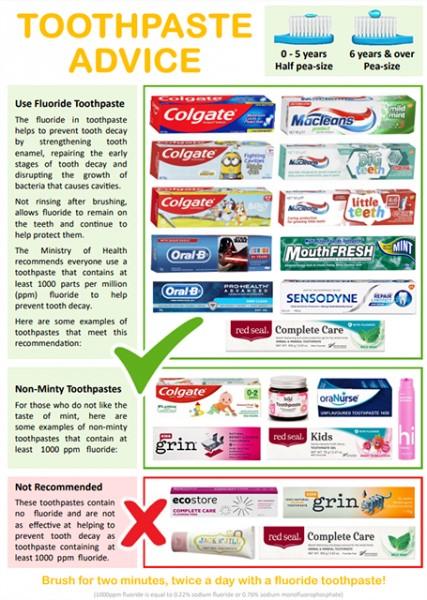
Regular dental check-ups
Oral healthcare is free for all tamariki (children) until they turn 18. Enrol your child with the service as early as possible, so that you can arrange the first check-up. Regular check-ups of your child's teeth increase the chances of finding and treating any tooth decay (holes) early.
To enrol with a service or to make an appointment, phone 0800 TALK TEETH (0800 825 583). Your dental therapist will tell you how often your child should have a check-up.
If your child accidentally bumps their teeth, take them to your local dentist, even if the teeth still look all right.
A video with 6 tips to help with brushing your preschooler's teeth.
Source: Bee Healthy Regional Dental Service
Lift the lip
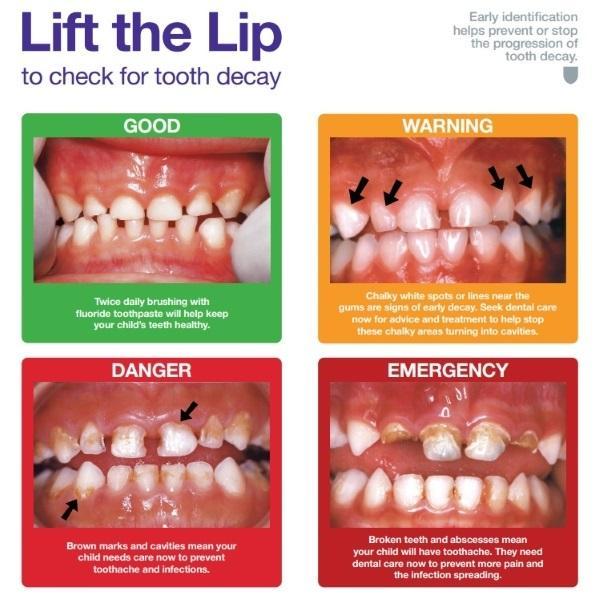
Gently lift your child's top lip once a month to check inside their mouth. It's a quick and easy way to see if tooth decay is present. See the lip the lip pamphlet (PDF, 1.33 MB) on the NZDA website.
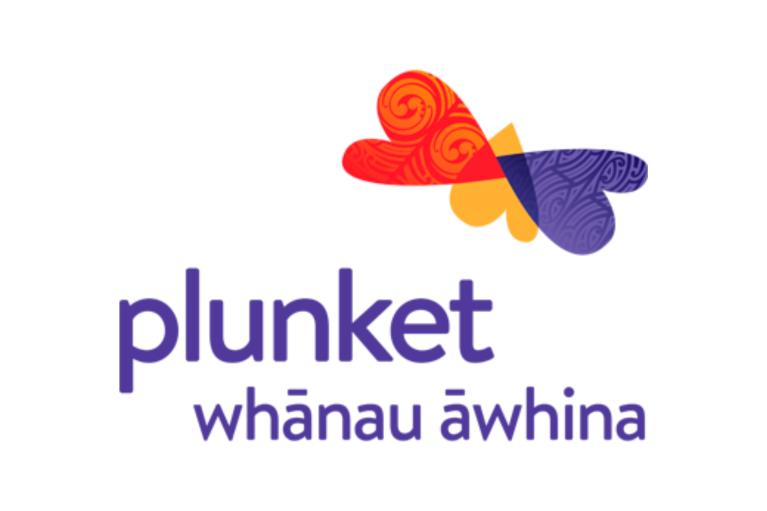
You can read about tooth decay and what to look for on the Plunket website.
Choose healthy snacks
Healthy eating = healthy teeth. To protect your child's teeth, give them low-sugar snacks between meals such as fruit, fresh vegetables, yoghurt and other dairy foods. Foods that are high in sugar can damage your child's teeth and cause tooth decay.
It’s also important to give teeth a rest during the day, so limit snacks to 2 to 3 times a day.
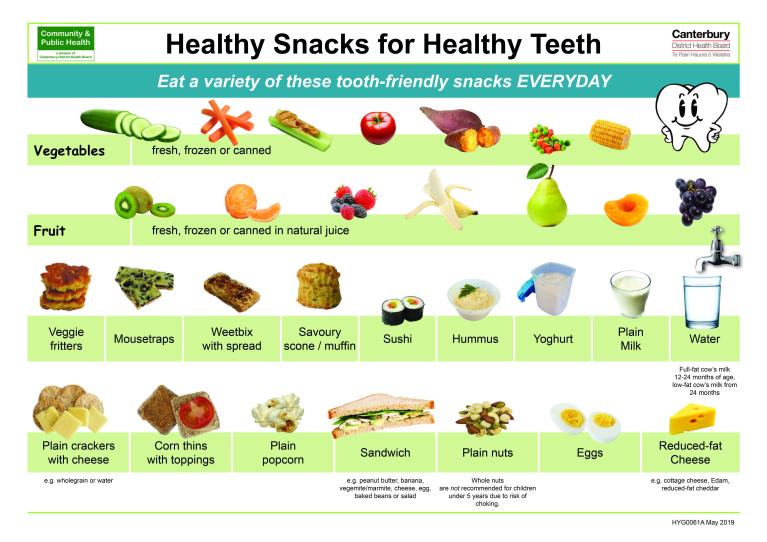
Check out the healthy snacks for healthy teeth poster (PDF, 8.8 MB) on the community and public health website.
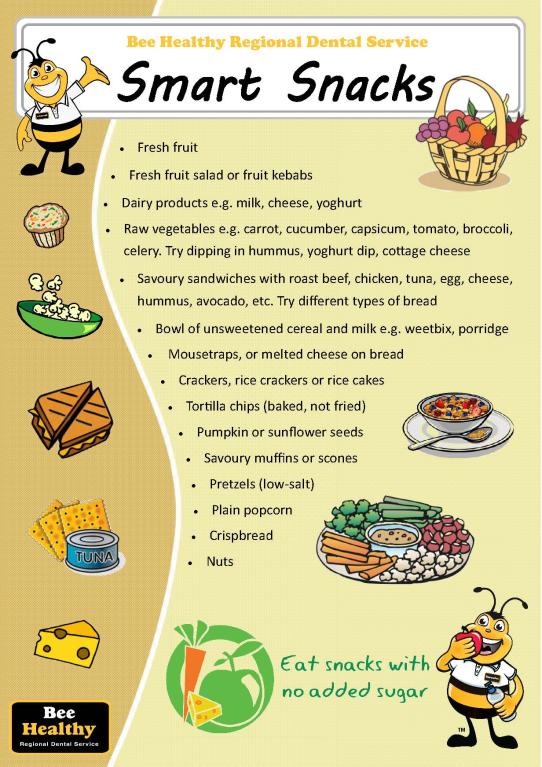
Check the smart snacks poster (PDF, 3 MB) for snack and lunchbox ideas for your child on the Bee Healthy Regional dental service website.
Drink water or milk
The best drinks for your child's teeth are water and plain milk. Do not give your child drinks that have natural or added sugar, such as fruit juice, cordial, fizzy drinks, flavoured milks and chocolate drinks. These can cause tooth decay.
A video on why your child's first teeth are important and how to care for them.
Source: Ministry of Health
transcribeTranscript
Title: Your Child: Healthy Teeth. Episode 14 of 15.
Title: Renee & Dez’s Whānau
[Shots of Renee and Dez’s home.]
Debbie (voice-over): It's really important for your child's first teeth to be looked after, for their own growth and development. They need them for eating, speaking and generally keeping well.
[Interview with Debbie.]
Title: Debbie Jennings, Dental Therapist
Debbie: My name is Debbie. I am a dental therapist with the school dental service in Wellington. I am here today in Dez and Renee's home, talking to them about how to look after Aidan's teeth.
[Interview with Renee and Dez.]
Renee: Hello, I'm Renee.
Dez: Hi, I'm Dez. We have a three-year-old son named Aidan.
[Shots of Aidan playing.]
Title: Aidan, 3 years old
Dez (voice-over): He's a very lively, very bubbly sort of little guy. He's just your typical three-year-old that runs around a lot, and really enjoys brushing his teeth now.
[Renee brushes Aidan’s teeth. Aidan resists.]
Debbie (voice-over): Baby will get their first tooth at around six months of age. It's important that we start brushing those teeth as soon as they come through. They will continue teething until around two-and-a-half to three years of age. They will then have twenty teeth.
Renee (voice-over): Aidan's first teeth started coming in at seven months, so as soon as they came in we started brushing his teeth. It was quite easy for a while, until he got to about a year-and-a-half. Then it was quite difficult for us to brush his teeth. He was quite resistant to a toothbrush. We tried so many different methods.
Debbie (voice-over): It can be quite challenging when they're little pre-schoolers. Just remember their mouth is really sensitive, and it's got to be done gently.
Renee (voice-over): Now at three years old, we're in a routine where we brush his teeth in the morning after breakfast and at night before he goes to bed.
Debbie (voice-over): It's really important for an adult to brush their child's teeth until around eight years of age. We need to be doing it for two minutes after breakfast, and especially at bedtime, and that's to get rid of all the food and the drink we've had during the day, so it's not sitting on our teeth when we sleep. Otherwise the saliva, which you don't get at night time, can't wash all those foods off your teeth, and that's when the food will eat into your teeth, and you’ll end up with holes.
[Renee prepares fruit.]
Debbie (voice-over): As kids are snackers, it's important we protect and look after their teeth in between meals. We need to be feeding them fresh fruit and vegetables, and healthy alternatives like dairy products or plain crackers.
[Aidan eats an orange.]
Dez (voice-over): We give him healthy snacks as opposed to sugary treats, because that will help in the long term with his teeth, and also his health.
[Renee leads Aidan to the bathroom and helps him brush his teeth.]
Renee (voice-over): On a typical day, after he's had his breakfast, I will take him into the bathroom. We keep his toothbrush in a special bag, so I take it out, and put the toothpaste on it for him, and give him the toothbrush, and let him play around with it for a little while. And then when he's done brushing his teeth, I play a special song, which times out two minutes, and then I do a thorough clean of his teeth, brushing his teeth and his tongue. And then when the two minutes is over, the song will stop. Then he's finished brushing his teeth for the morning. That’s him done.
[Interview with Debbie.]
Debbie: Just remember, their tooth is like a little box, and we need to make sure we get all those surfaces. The top of the teeth, around the sides, the tongue, and also the gums. It's also important that we use a full-strength toothpaste, but just a little smear, as soon as their teeth start to come through. We don't lose our last baby tooth until about eleven or twelve years of age, so it's important to keep them healthy so they can guide the position of the big teeth coming through. I'd really like to encourage you parents to look after your children's teeth and help them end up with a lifetime of happy, healthy teeth.
Title: Our thanks to the families and health workers who appeared in this video for the Ministry of Health.
